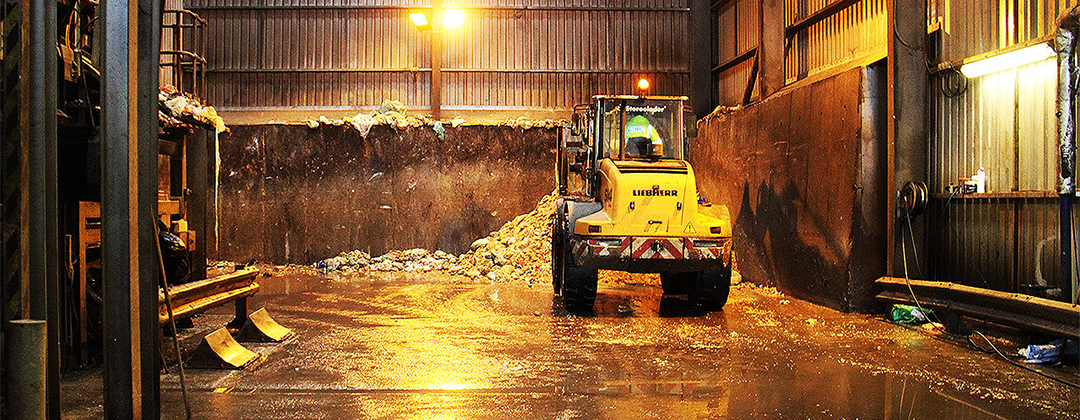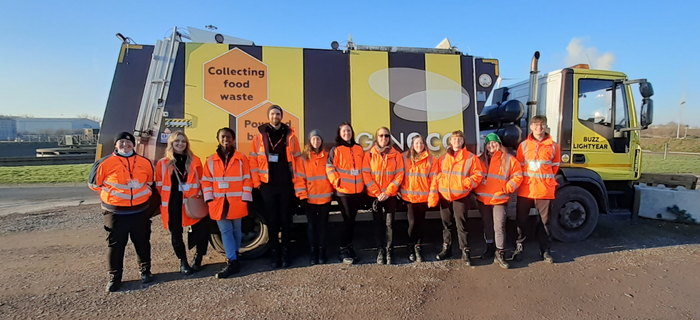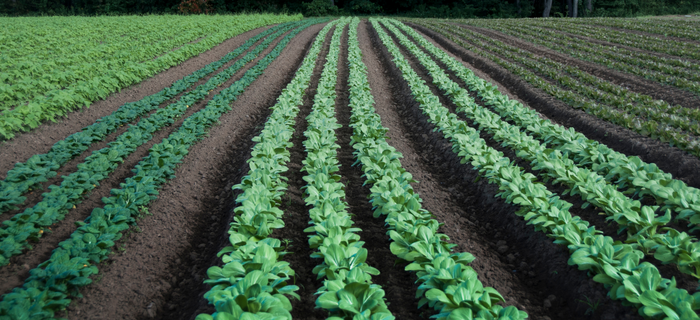Where your recycling goes – food waste

What happens to food waste in Bristol?
Did you know that every tonne of food waste that’s diverted from the landfill can displace 0.6 tonnes of CO2 from the atmosphere? Recycling food waste is more important than ever, which is why we recently visited the GENeco plant in Avonmouth to witness the incredible process they use to transform leftover food into something useful.

What happens after you put your food waste caddy out for collection
Once you’ve put your food waste bin out for collection, it is collected by our crews and taken to the transfer station, where there are big containers. When these are full, they are transported it to the GENeco food recycling plant.
GENeco then remove any compostable or plastic bags before the food waste is fed into an anaerobic digester. Inside the digester, tiny micro-organisms can work their magic to break down the waste without oxygen. Through this process, they create a valuable resource: methane-rich biogas.
This biogas can be used in two ways: either to generate renewable electricity or to produce enriched biomethane, which goes into the gas grid to heat homes.
A solid by-product of the process, called “cake,” can also be used by farmers as a sustainable alternative to conventional fertilisers.

You can reuse any old bag to line your food bin
Compostable products, including bin liners, need oxygen to break down. As oxygen is not present during the anaerobic digestion process they need to be removed from the food waste before it can be processed.
GENeco remove compostable bags along with any other plastic they find, so it’s OK to line your caddy with an old cereal or bread bag and it saves a few quid, too!
Don’t let your leftover food go to waste
It’s amazing to see how GENeco can turn all sorts of food waste and liquid waste into something so valuable. Ultimately, your leftover apple cores can be turned into light and heat, and even help to grow new food.
We can all do our part to reduce food waste and help the environment. Whether it’s leftover fruits and vegetables or expired products – recycling your food waste is simple and easy. All you need is a food waste bin and the commitment to make a difference!
Recycling food waste is important, but it’s even better to avoid it in the first place. The average household spends more than £700 on wasted food. Luckily, small changes can add up to big savings.
